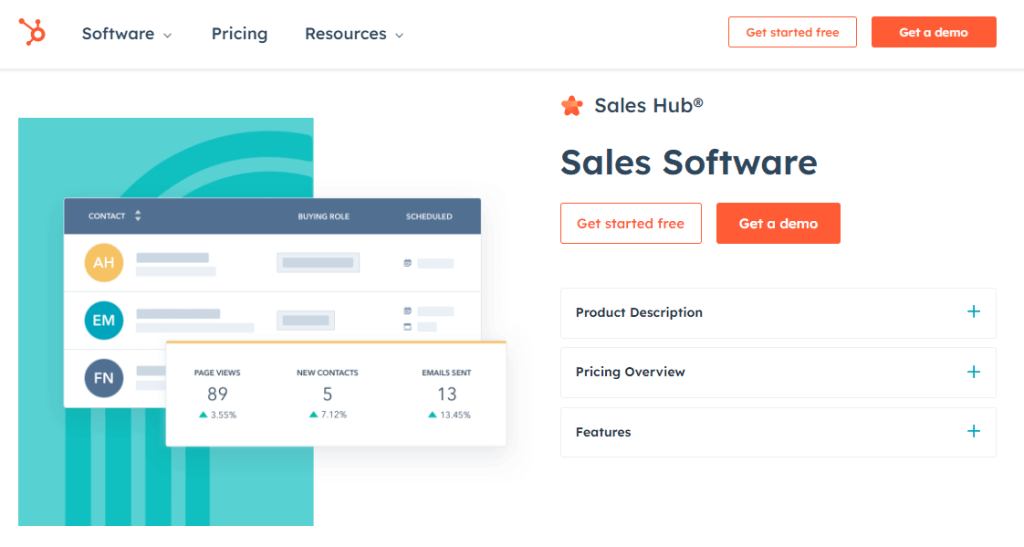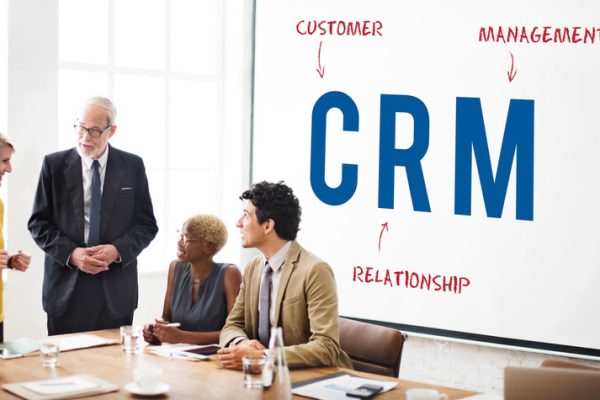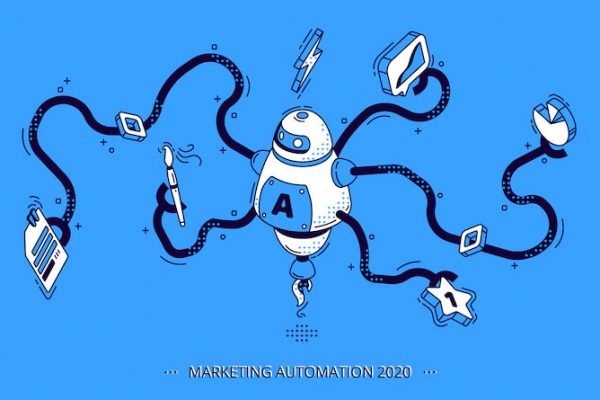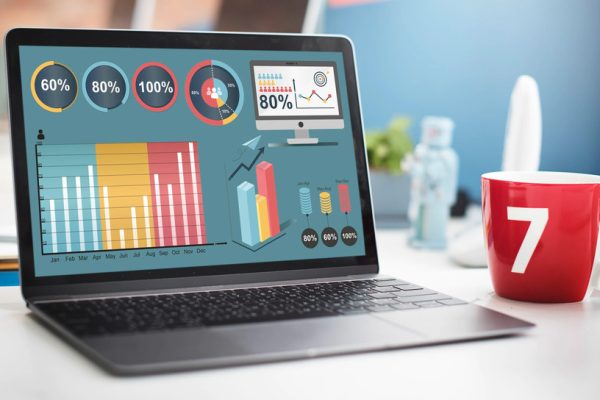A CRM can be a powerful tool for any small business. It helps you organize and prioritize your sales activities, reduce administration costs, improve customer service and even compete better with larger companies.
In this article, we’ll find the answer: how does a CRM add value to your small business? So, let’s dive in.
1. Helps Organize and Prioritize Your Sales Activities
A CRM helps you organize your sales activities. It helps you prioritize your sales activities by providing a way for customers to communicate directly with you and for partners to provide feedback.
This can be particularly useful if there are multiple ways for a customer or partner to reach out, such as through email, phone calls or even social media interactions.
By allowing them all in one place (the CRM), it becomes easy for everyone involved in the transaction process—from initial contact with the company through closing—to know what needs attention next. So that they can get back on track quickly when something comes up unexpectedly.
2. Reduced Administration Costs
Reducing manual data entry is a great way to save money. You’ll also be able to reduce the time spent on repetitive tasks, such as entering data into spreadsheets or creating reports manually.
This will help you focus on more valuable activities like sales and marketing, which are often neglected when there’s too much manual work involved in running your business.
Additionally, having one system that handles all of your CRM needs means you don’t have to spend money on additional tools or training sessions—which can be expensive in themselves!
3. Improved Customer Service
You can use your CRM to track and manage customer service requests, complaints, inquiries, and feedback.
With a built-in knowledge base of customers’ information (including contact details), you’ll be able to respond quickly without having to call each individual out of the blue.
You’ll also be able to see how many times a customer has called in over the last year so that you can make decisions about what types of calls are worth responding on an ongoing basis or not.
In turn this will help improve overall customer satisfaction levels since it will ensure that they receive timely responses from their queries—and if they don’t then we might want them back!
4. Compete Better With Larger Companies
A small business has the potential to be more competitive than many other companies because it doesn’t have the overhead costs that are associated with hiring large numbers of employees or opening multiple locations.
Additionally, many small businesses don’t have to worry about being able to compete on price as much as they do when competing in other aspects of their industry.
A good CRM can help you get ahead in this area by providing information about your competitors’ prices and services. So that you know what kind of deals are out there before making any decisions about which service provider would be best for your needs (and budget).
5. Easier Communication With Team Members
If your business is a small team, it’s important to be able to communicate with them effectively. This can be especially challenging if they’re all scattered across different locations or at least in different time zones.
In addition to improving communication, a CRM also allows you to track customer interactions and share information about them with other departments within the company (like sales or marketing).
In this way, you’ll be able to better understand who has been doing what for which clients so that when new ones come along it’s easier for everyone involved!
6. Manage Your Sales Funnel
A sales funnel is a series of steps you take to get someone from first contact with your company to a sale. It’s a great way to understand where your customers are in the purchase process, and helps you determine which marketing channels they use most often.
The CRM will help you manage these processes by providing information on who your leads are, what they do, and how they interact with other tools in their workflow (like email).
It can also provide analytics about their interactions with other systems like social media or web pages within websites.
7. Stay in Touch With Customers Efficiently
- Email marketing is a great way to keep in touch with customers. You can send emails that are tailored to each customer, including offers and other relevant information.
- Social media has become an important part of most businesses’ marketing efforts. It allows you to reach potential clients who may be interested in your products or services, but not necessarily find you through traditional channels like search engines and newspapers.
- Direct mail can also be effective at keeping in touch with customers who would otherwise not get their hands on your product or service (for example, if they live far away). It’s best when done regularly so that people remember how much you care about them!
8. Helps You Focus Your Attention on the Right Customers and Activities
A CRM can help you focus your attention on the right customers and activities. It helps you identify who is most likely to become a customer, so that you can spend more time and energy on those prospects. The right people will be listed as leads, which means they’re identified with a high priority for sales activity.
A CRM also allows sales reps to prioritize their own tasks, so they know what needs to be done first or last depending on how busy they are at any given time of day or week.
This allows them better control over which activities get performed first—and thus ensures that salespeople have enough time each day spent on tasks related directly back into revenue generation efforts (like cold calling).
9. Serves as a Single, Centralized Repository for All Customer Information.
It’s a single source of truth for all your customer data, allowing you to find (and keep track of) the right customers at any time. The more information available in one place, the better it can be used by sales teams and marketing teams alike.
A common misconception about CRM systems is that they’re only useful if they’ve been custom built by someone who knows how small businesses operate—but this isn’t true!
Most companies have some kind of platform already installed on their computers or mobile devices; what they need from a service is, help understanding how best to use it so as not only grow their business but also attract new ones from around town as well
10. Gives You Visibility Into Each Customer’s Journey.
A CRM gives you visibility into each customer’s journey. You can see the entire customer journey, from first contact to final purchase. This allows you to identify where you are losing customers and why, as well as where you are gaining new ones and why.
You can also get an idea of what is working and what isn’t by seeing where conversions occur or not occur, how long it takes for people to make a purchase decision (and whether there’s anything else they need before they buy).
How many times your team has reached out via email so far this year (and whether these emails were replied within 24 hours), etc.
11. Identify Who Your Best Prospects Are So You Can Focus Your Sales Efforts.
A CRM is a tool to help you identify your best prospects. It will help you focus on the right people, and it will help you find the most promising leads.
You can use it to find out which customers are making more money than others, so that you can contact them first.
A CRM can be used as an excellent tool for identifying your most profitable customers.
12. Transforms Your Sales Team From Order Takers to Trusted Business Advisors.
A CRM will transform your sales team from order takers to trusted business advisors.
- It will help you identify your best prospects by providing information on each lead, including their name, email address, phone number and location. You can then follow up with them through the system once they’re ready to buy.
- It will help you identify who your best customers are by allowing you to see how much revenue each customer generates per month or quarter in comparison with all others on the same account type (e-commerce store, e-commerce subscription service). This helps determine which of these accounts should be prioritized when making purchases; it also allows for more targeted marketing efforts because there is an understanding of what drives results for that particular customer base. It will help you identify which customers fit into categories like most profitable or loyal ones—and then create personalized offers based on those preferences so that they continue coming back again and again
13. Build Stronger Relationships With Customers.
A CRM helps you build stronger relationships with customers. It’s easy to get caught up in the day-to-day of running a business, but it’s important to remember that building trust and loyalty with your customers is one of the most important goals for any small business owner.
The CRM platform provides you with a dedicated account manager who will monitor all activity from your contacts and provide valuable insights into what they need from you.
This means that when someone calls or emails about their needs, they can easily be addressed by someone who knows them personally (and vice versa).
In addition, when there are problems that arise within an account, it’s likely that this person will know how best to resolve things on behalf of both sides without causing unnecessary stress or confusion—which ultimately increases customer satisfaction!
14. A CRM Tracks Your Key Marketing Metrics So You Can Drive Better Results.
A CRM helps you measure the success of your marketing efforts. It can help you understand your customers better and make better decisions about your marketing budget.
For example, if a client signs up for an email campaign that sends out daily emails with tips on how to use the product they purchased, but then stops receiving those emails after a few weeks.
Because she didn’t open them within a set amount of time (or at all), this might indicate that she wasn’t interested in what was being offered anymore—which means it’s time for another strategy!
Why is Hubspot CRM an Ideal Tool for Your Small Business?
HubSpot CRM is a marketing and sales platform that helps small businesses to increase their revenue. It is one of the most advanced tools for small business owners because it provides features that are tailored to the needs of the small business owners.
It has a variety of features such as lead generation, email marketing, and social media management. It also integrates with other platforms such as Google Analytics, Google AdWords, Salesforce, and MailChimp.
There are many reasons why HubSpot CRM is an ideal tool for your small business.
- The first reason is that it can help you with lead generation by providing a set of tools to generate leads and provide them with the right content.
- The second reason is that it can help you with marketing automation by providing tools such as HubSpot Forms and HubSpot’s Actionable Email Templates which allow you to automate your marketing campaigns.
- The third reason is that it can help you with sales by providing tools such as Lead Scoring and Sales Automation which allow you to track the progress of your leads and prospects respectively.
Summary
A CRM is an important tool for your small business. With all the great benefits it provides, it’s no wonder that more and more companies are adding one to their marketing arsenal.
If you want to add value to your small business then HubSpot CRM can be an ideal solution for its needs. It delivers all the things you need to succeed in your small business.
Get started with HubSpot CRM to add immense value to your business. FREE trial available. I hope you have understood how a CRM adds value to your small business.






